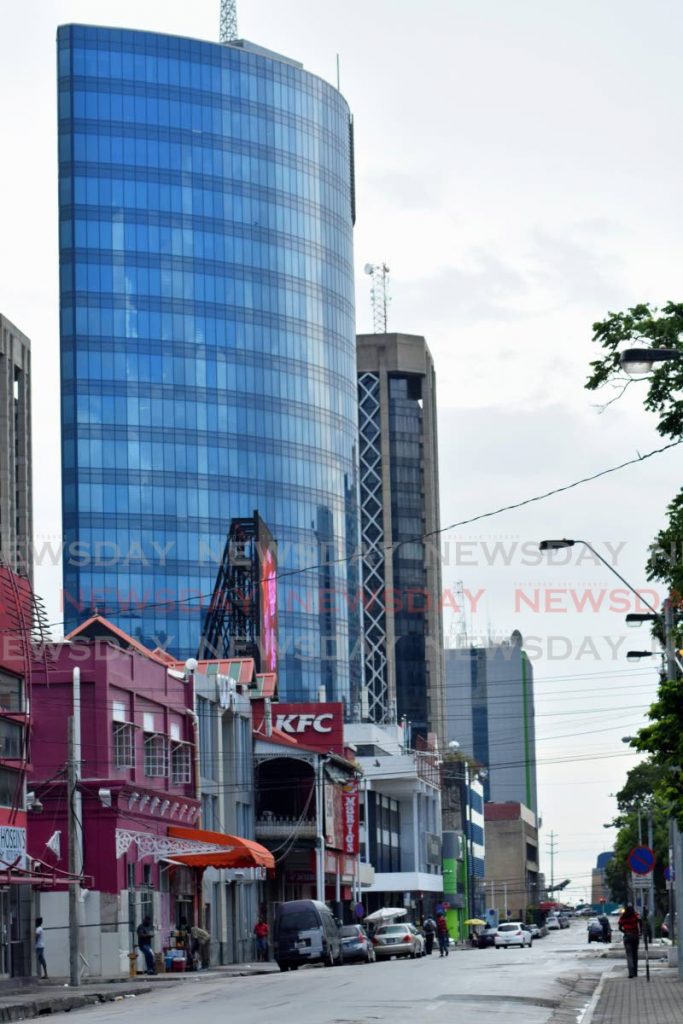Public servants and a pandemic budget

As the clock ticks and we inch closer, day by day, to the presentation of the pandemic budget, business trembles. When the expected deficit budget is read, will it be the small and medium business sector that will be asked to carry the can? Can the state sector actually make money itself? Well, can it? Can it cut its exorbitant operating costs and become more efficient? Or will it just depend on taxes gleaned from the depleted private sector?
The Prime Minister has pointed out in his usual acerbic way that the civil service is inefficient and unproductive. Well, we knew that. The President has commented on the overstaffing and lack of proficiency. Is there anyone who does not have their story to tell about trying to get a licence to operate, about trying to mail an important document abroad, of waiting in line hour after hour at the licensing office only to get to the end of the line to be greeted by an insolent and lazy clerk with a toothpick in his mouth leaning back in his chair drawling: “You have to get a form from that wicket over there” pointing to another mile long line of weary people?
I once got a summons from the inland revenue office requiring my husband’s presence to straighten out a claim for an alimony payment to his ex-wife he had not filled out properly six years previously. I had all the necessary forms and receipts showing that he had paid it properly and on time, but the person behind the counter said that he had to come in himself. OK. Maybe I was a bit tired, having waited in line there since 8 am when no one came in to serve till half past nine so I may have been a tiny bit short. I explained that he had died ten years previously, that I had with me a copy of his death certificate that I had sent to them the year he died. She glanced at me, bored, and repeated, “He has to come in himself.” I explained gently as possible that he was unable to on account of being dead. And she explained as loudly and authoritatively as possible that the regulations had to be followed and he had to come in and sign himself.
Subsequently I had a document to mail to a business colleague in Cyprus that he needed urgently. At the post office in Wordbook the girl at the counter told me the cost of mailing something that large to the UK. I was surprised. When I told her the document was to go to Cyprus, not the UK, she looked at me disdainfully and told me Cyprus was in the UK. When I insisted that it was not, she became quite offended in an “Are you trying to tell me I don’t know my business? Who do you think is in charge here?” tone. Then she said that Cyprus was in Europe and Europe was in the UK and when I politely tried to correct that she became even more offended and would not accept that Cyprus was not in Europe either. “I did geography” she hissed at me.
Without an efficient public service, the business community that provides employment will not thrive either.
I thought of her today, looking through 50-something applications for a single clerical position for a client who specified literacy as a key qualification. And I thought again of our President and her observations on our educational system, which is part of the public service, and the comments from other academics bitterly blaming the prejudicial system for the quality of education that poor black children had received compared to the quality education those who went to “prestige schools” had had, (less than six per cent of whom are a lighter shade of pale, incidentally, but who is counting?) and pondered on the governments…the same governments over the past 58 years, that had presided over the educational system that produced both. The only difference appeared to be in the selection, training, monitoring and supervision of the teaching staff. They all have the same curriculum and write the same exams worldwide, denominational schools produce higher scoring graduates. Parents sometimes have to pay more for books, but they pay for what matters most to them. Take a look at our results from Hindu, Catholic, Muslim, Presbyterian and Anglican schools compared to government schools and ask yourself why government schools perform so poorly. Is it that what is perceived as “black” governments discriminate against "poor black children”? Do you really believe that?
When employers read letters applying for administration jobs that are ungrammatical, that are mostly unpunctuated, that can’t tell the difference between the use of “between” and “among” or “their” and “there” they are accused of class prejudice for rejecting them.
A couple of generations ago, when the country was newer, there were public servants with names like Frank Rampersad, Scotty O’Neil Lewis, and Harold Fraser working until 2 am night after night in the Ministry of Finance preparing the budget for that year, then getting up to get to work again for 8 am as their political masters changed their minds about one allocation or another. I often wondered (as did they, privately) if the colonial administration in London had left dysfunctional systems, public service, police service and educational service commissions and all, on purpose. And we just never caught on.

Comments
"Public servants and a pandemic budget"